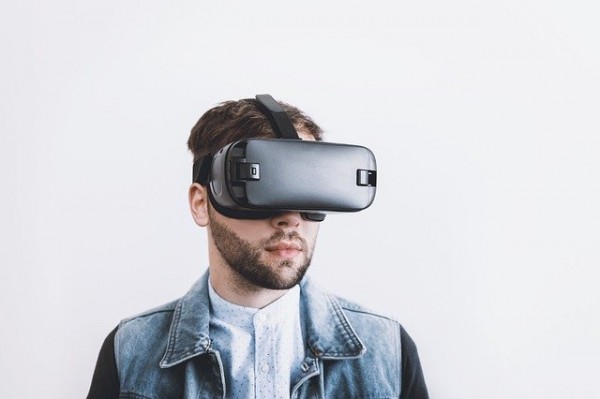By Telegiz , | April 21, 2020
- PREV
- Image1of0
- NEXT

Image by Jan Vašek from Pixabay
Like Us on Facebook
As hospitals global face extreme shortages of health specialists, people are being called off the sidelines to help COVID-19 patients - even those with little to no revel in treating diseases. A few hospitals are now tapping virtual reality simulations to teach heaps of docs and nurses specializing in surgical treatment or neurology, and retired practitioners returning in the field.
More than 300 doctors learned new skill through VR
At Cedars-Sinai medical institution in Los Angeles, more than 300 medical doctors have learned how to assess an affected person's symptoms or carry out CPR while wearing gear through VR.
"It feels like you are in the room with a patient," said Russell Metcalfe-Smith, the director of Women's Guild Simulation Center for Advanced Clinical Skills at Cedars-Sinai Medical Center.
Based on the decisions one will make in the simulation, Metcalfe-Smith told CNN one direction will lead to another. Metcalfe-Smith, who handles a department that is training staff for COVID-19, said they have doctors jumping quickly into a virtual environment to get them to where they need to be.
Doctors and nurses at hospitals nationwide are undergoing a range of coronavirus-related training now. These include how to effectively put on and take off protective equipment, how to make use of ventilators that are only used by intensive care staff, and handling a diagnosis.
VR trainings a 'to-go' site for hospitals
But because time and resources are limited, the door has opened for technologies like VR to fill inside the gaps. Considering how the medical enterprise has long been an early adopter of VR, it's a to-go place for hospitals.
"We've found it very valuable to observe a [doctor's thinking] process -- and it's all been done with social distancing," Metcalfe-Smith said.
But since the medical field can't get large groups together right now, Metcalfe-Smith said they had to rely on technology like this to give the same experience.
The health facility makes use of software programs from startup Virti, which provides specific feedback and metrics on procedures clinical experts may need more practice with. Cedars-Sinai started the use of the program in January but rolled it out to more health professionals in mid-March because of the outbreak.
How Virti works
Virti founder Dr. Alex Young told CNN the startup wanted the exercises to embody what is happening in the world right now.
The business enterprise signed up 70,000 new users in the past three weeks throughout hospitals and universities in the United States, United Kingdom, and Israel.
Typically, trainees learn in environments watched by evaluators and their peers at the back of a glass wall. In the sort of scenario, a mannequin, controlled remotely, acts as the affected person. But a digital simulator lets scientific specialists practice the abilities they need through a VR headset or a tablet, on the hospital, or at home.
"One simulation puts the user alone in an isolation room, where they can see nurses and doctors come in and out, so they can get an idea of how scary it is for patients," Young said.
Boston-based Oxford Medical Simulation is also focused on enhancing the decision-making technique for practitioners in emergency situations. Its scenarios range from a way to correctly and safely placed on defensive gear to more intensive conditions with sick patients.
In one of Oxford's simulations, a nurse in avatar arms uses a data with a brief history of the virtual affected person.
The doctor or nurse is then required to assess his or her signs, making choices in real-time based on how the patient reacts. They'll want to check the stomach or the lungs or make speedy judgment calls if someone vomits up blood, has a seizure or gasps for air.
VR trainings can be powerful in limiting injuries
Oxford's scenarios aren't always COVID-19-particular, but constitute what any medical expert may stumble in an emergency.
Early clinical research on VR training has determined the equipment could be influential in decreasing injury, rushing up techniques, and enhancing universal results.
According to a 2018 study published in the Journal of Advances in Medical Education & Profession, people trained by VR had "lower performance errors and higher accuracy compared to those trained by conventional approaches."
However, it brought that the technology needs to be used as a complementary device to standard methods, and more research needed to be carried out at the topic.
-
Use of Coronavirus Pandemic Drones Raises Privacy Concerns: Drones Spread Fear, Local Officials Say

-
Coronavirus Hampers The Delivery Of Lockheed Martin F-35 Stealth Fighters For 2020

-
Instagram Speeds Up Plans to Add Account Memorialization Feature Due to COVID-19 Deaths

-
NASA: Perseverance Plans to Bring 'Mars Rock' to Earth in 2031

-
600 Dead And 3,000 In The Hospital as Iranians Believed Drinking High-Concentrations of Alcohol Can Cure The Coronavirus

-
600 Dead And 3,000 In The Hospital as Iranians Believed Drinking High-Concentrations of Alcohol Can Cure The Coronavirus

-
COVID-19: Doctors, Nurses Use Virtual Reality to Learn New Skills in Treating Coronavirus Patients







